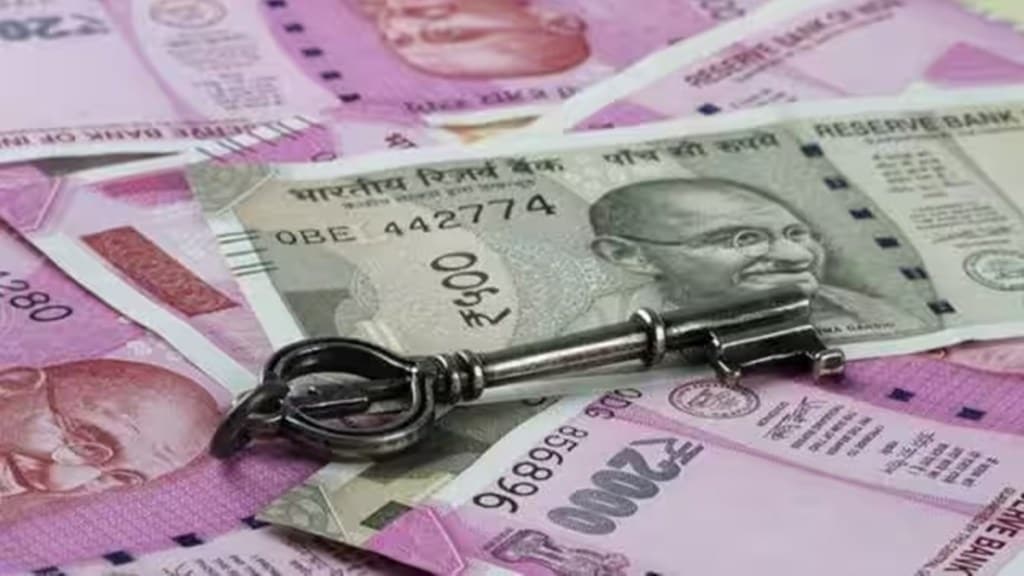There is now more evidence that the sharp corporate tax cut announced in September 2019 continues to dent tax revenue growth, without triggering any investment boom.
In April-July this fiscal, corporate tax collections contracted 10.4% year-on-year to Rs 1.76 trillion. A decline in the corporate tax mop-up is a rare occurrence, although it happened in the 2020-21, the pandemic year.
This is despite corporate earnings in the first quarter of the current fiscal being rather strong. Firms in cyclical sectors such as BFSI and automobiles, as well as oil companies posted robust profits in the quarter, helped by easing input costs. To be sure, Nifty companies registered 32% earnings growth in Q1FY24, even as top-lines were subdued.
However, Motilal Oswal Financial Services (MOFSL) pointed out that corporate investments likely fell 6.2% in Q1FY24, persisting with a trend seen since the previous quarter. Pertinently, the whole of 2022-23 also saw a contraction of 0.5% in corporate investments. The slowdown in fresh corporate investments has led to a steady decline in their share in overall capex in the company and the gross domestic product (GDP).
“Corporate investments, on the other hand, slid further to 12.3% of GDP in1QFY24, compared to the average of 16.5% of GDP in 1Q of the past decade and even lower than 12.6% of GDP in 1QFY21.” Moreover, private capex grew by only 2.6% annually in Q1FY24, marking the slowest growth in 11 quarters.
As private capex growth slid, the share of gross fixed capital formation in the GDP fell to 29.3% in Q1FY24, compared with 31.7 % Q4FY23.
Among the reasons cited for the decline in corporate tax collections in April-July is the fall in the effective tax charged on corporates, and a high base.
“The effective tax rate depends on tax payments as well as profits before tax. It does appear that this ratio has come down in FY23 and marginally in FY24 (Q1),” said Madan Sabnavis, chief economist, Bank of Baroda. Effect tax rate in terms of companies is the ratio of total taxes (including surcharge and education cess) to the total profit before taxes (PBT). As large corporates with elevated PBT avail higher deductions and incentives compared to smaller ones, the effect tax rate for the former is lower.
According to finance ministry data, effective tax rate for the entire base of companies (9,61,279) it has complied data of, was at 22.2% in 2020-21, lower than 22.54% in 2019-20. The effective tax rate of companies with PBT greater than Rs 500 crore was 19.14% in 2020-21, which is lower than all the companies having profit below Rs 500 crore. “This highlights that larger companies are availing the higher deductions and incentives or have shifted to the new regime or lower tax rate of 22% plus cess and surcharge,” the finance ministry noted.
With an aim to make India globally competitive, the government has over the years lowered the corporate tax rates. The Union Budget 2019-20, had widened the scope of the lower tax rate of 25% to all companies having annual turnover up to Rs 400 crore. This was expected to cover 99.3% of all companies. A concessional tax regime of 22% for existing companies and 15% corporate tax was also introduced for newly incorporated domestic manufacturing units, provided they do not avail any specified deduction or incentive.
“The effective tax rate going down in FY21 is not surprising as both these reforms were in play,” said Sudhir Kapadia, partner, EY India Tax & Regulatory Services.
Kapadia, however feels that the decline in effective tax rate is not affecting the fall in corporate tax collections. “The entire package of incentives for manufacturing has a larger economic objective, it goes beyond taxation…in general, the rate of growth of tax collections is directionally in tandem with the economic growth rate. If growth falls, tax collections will fall, both direct and indirect,” he said.
Bank of Baroda’s Sabnavis believes that if the effective tax rate of corporates continues to fall with the phasing out of more incentives and exemptions, corporate tax collections may take further hit. “Though, they would plateau out once they reach an equilibrium level.”
